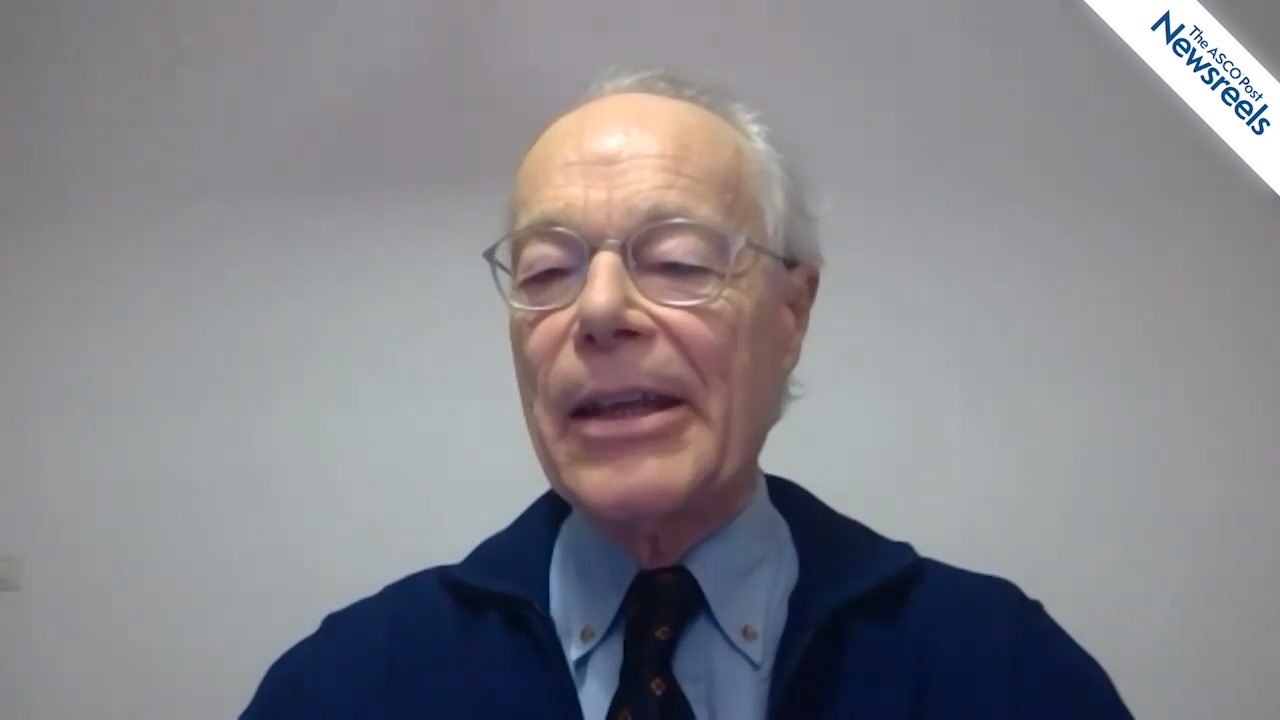Sandro Pignata, MD, PhD, on BRCA-Mutated Ovarian Cancer: Maintenance Olaparib Outcomes
SGO 2021 Virtual Annual Meeting on Womens Cancer
Sandro Pignata, MD, PhD, of the Istituto Nazionale dei Tumori, discusses results from the ORZORA trial, which showed the efficacy of olaparib in patients with platinum-sensitive relapsed ovarian cancer is similar, whether they have a germline or somatic BRCA mutation. This information could prove useful for clinical practice (ID #10226).
The ASCO Post Staff
Eric Pujade-Lauraine, MD, PhD, of Hôpital Hôtel-Dieu, discusses results from the PAOLA-1ENGOT-ov25 trial on the use of homologous recombination–repair mutation gene panels and whether they can predict the efficacy of olaparib plus bevacizumab in first-line maintenance therapy for patients with ovarian cancer (ID# 10224).
The ASCO Post Staff
Supriya Chopra, MD, of Tata Memorial Centre, discusses a final analysis of the phase III PARCER trial, which showed that image-guided intensity-modulated radiotherapy is superior to conventional radiotherapy in reducing bowel toxicity in women with cervical cancer. Acute diarrhea was also reduced, with no difference in disease-related outcomes (ID# 10224).
The ASCO Post Staff
Rebecca S. Kristeleit, MD, PhD, of the University College London and UCL Cancer Institute, discusses efficacy and safety results from the phase III ARIEL4 study, which showed that rucaparib improved progression-free survival vs standard-of-care chemotherapy in patients with BRCA-mutated, platinum-resistant, or platinum-sensitive relapsed ovarian cancer (ID #10191).
The ASCO Post Staff
Alice P. Barr, MD, of the Carolinas Medical Center and Levine Cancer Institute, discusses results from a retrospective study, which showed that progression-free and overall survival appeared to be no different with open surgery and minimally invasive surgery for interval debulking after neoadjuvant chemotherapy in women with advanced epithelial ovarian cancer. Perioperative outcomes also seemed to be superior with minimally invasive surgery (ID #10209).
The ASCO Post Staff
Charles N. Landen, MD, of the University of Virginia, discusses results from the first clinical trial in ovarian cancer to demonstrate that neither a BRCA1/2 mutation nor a homologous recombination deficiency improves sensitivity to a therapeutic PD-L1 blockade in patients receiving atezolizumab vs placebo combined with carboplatin, paclitaxel, and bevacizumab for newly diagnosed disease (ID #10240).





